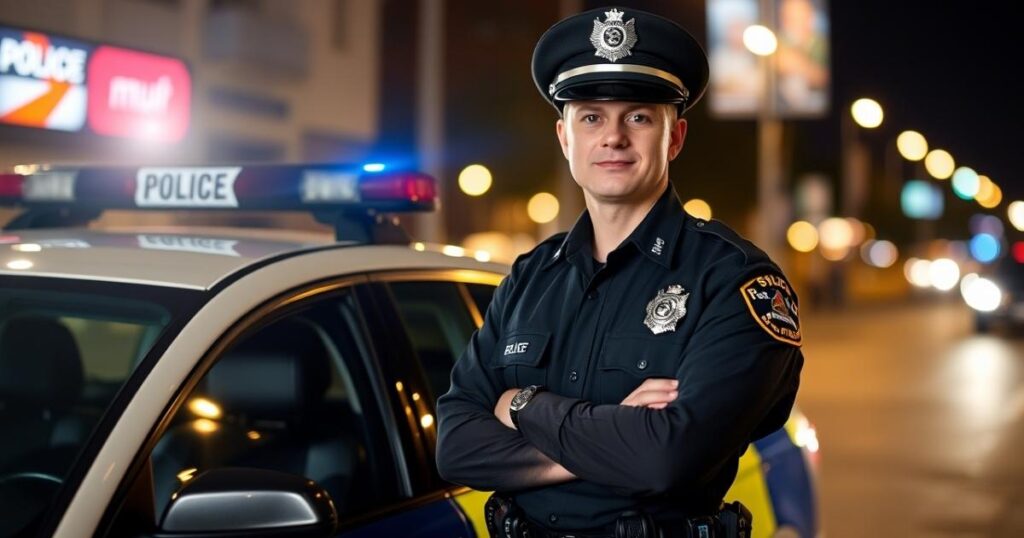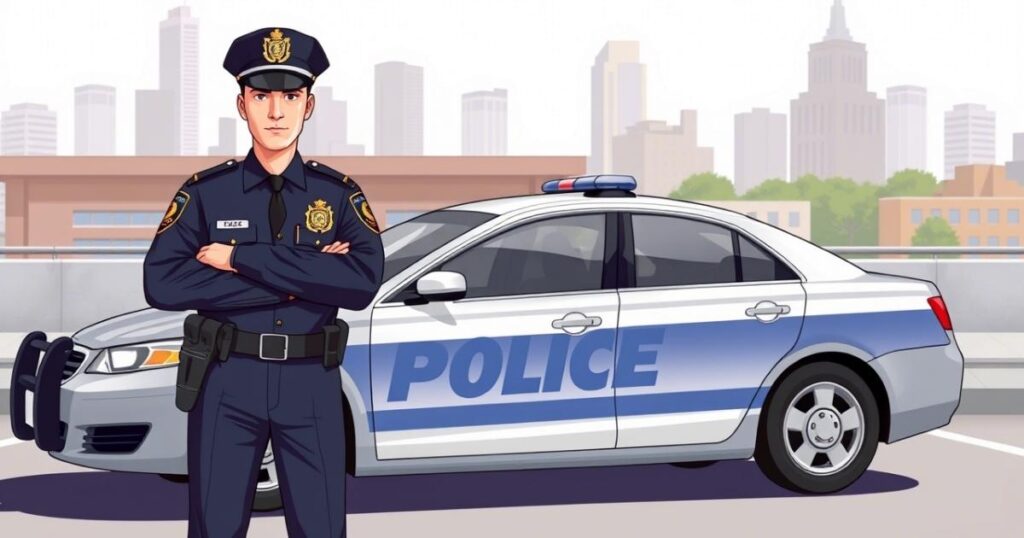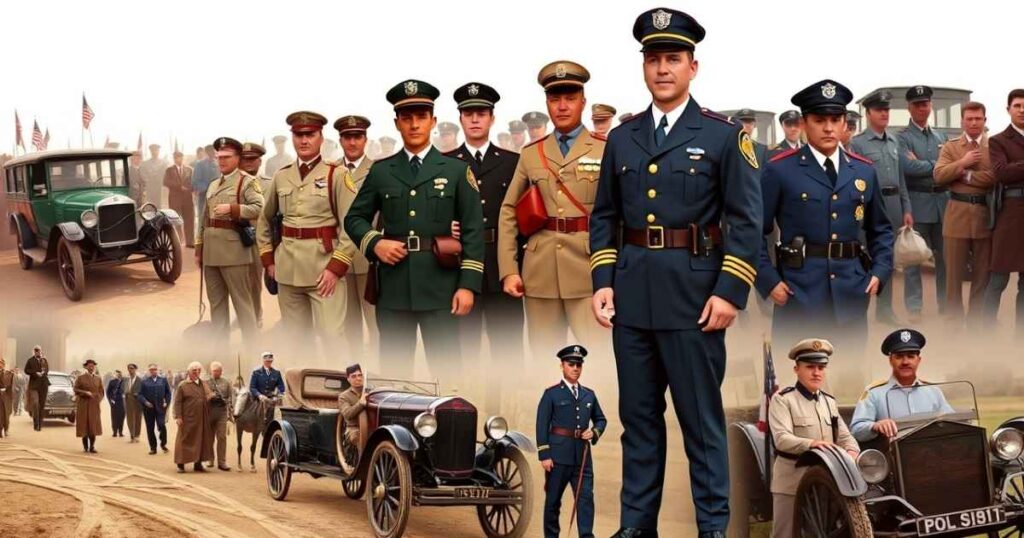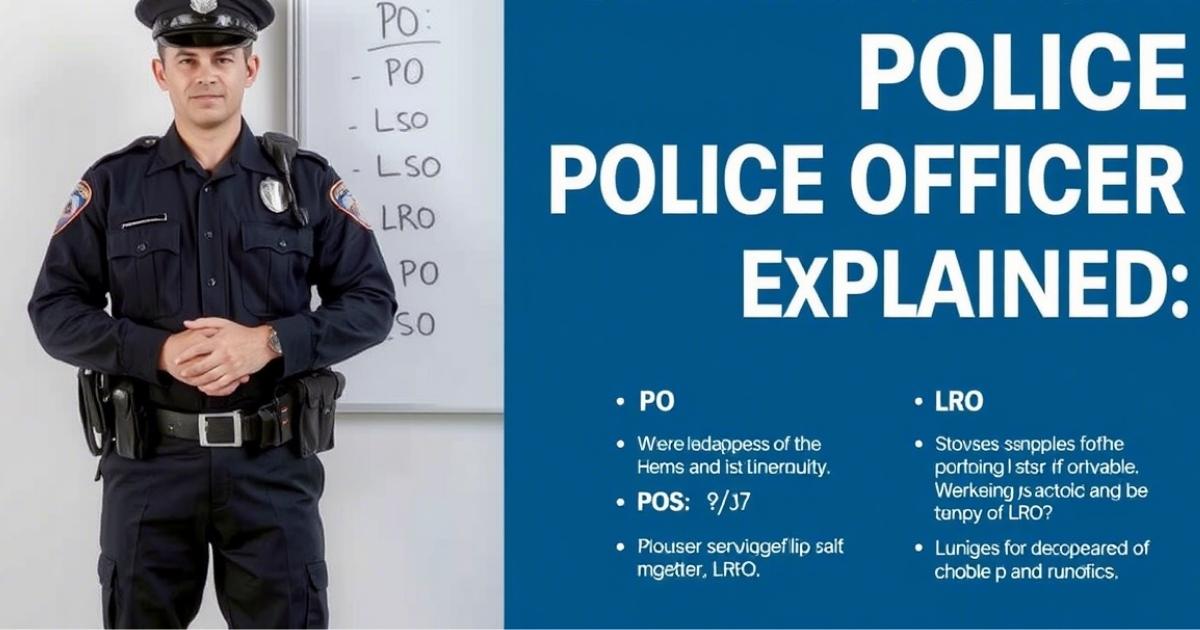When discussing law enforcement, the Abbreviation for Police Officer is a term used to simplify communication. Many people ask, “what is the abbreviation for officer?” because using a short for officer makes writing and speaking faster. The Abbreviation for Police Officer is popular in both official reports and casual texts. Terms like abbreviation for officer police and abbreviation of officer are also frequently used when referring to a police officer. This focus on the Abbreviation for Police Officer helps everyone understand who is being talked about in a clear and efficient manner.
In many documents and conversations, the Abbreviation for Police Officer appears repeatedly to save time. Whether someone wonders, “what is the abbreviation for officer?” or prefers to use a short for officer version, the Abbreviation for Police Officer proves its value. Additionally, the abbreviation for police officer is essential for clear and concise language in both formal and informal settings, ensuring that the role is always easily recognizable.
What is the Abbreviation for Police Officer?
The most common abbreviation you’ll come across is “PO.” Yes, it’s that simple! You might see it in various contexts, from official documents to everyday conversations. Another commonly used form is “Ofc.”, which is short for Officer and often appears before a name (e.g., Ofc. Johnson).
These abbreviations make it easy to refer to a police officer without writing out the whole term.
Examples:
- Official Use: “The PO responded to the emergency call.”
- Everyday Use: “I saw Ofc. Martinez directing traffic this morning.”
Both PO and Ofc. are widely used, with Ofc. being more common in informal settings like texting or social media.
Now, you might be wondering, why do we use these abbreviations? In professional and law enforcement settings, shortening terms like police officer helps save time and streamline communication.
In a fast-moving world where efficiency is key, abbreviations like PO aren’t just practical; they reflect a broader trend of language evolving to fit different contexts. Just as we see PO widely accepted today, other professional terms continue to be abbreviated for convenience in official and everyday use.
What Does Police Officer Mean?

We all know that police officers are the ones we rely on when emergencies arise or when we need protection.
But let’s look deeper. A police officer is a trained law enforcement professional responsible for ensuring public safety, upholding laws, and maintaining peace in the community.
Their duties include patrolling streets, investigating crimes, responding to distress calls, and assisting citizens in various situations.
Simply put, police officers do more than just enforce laws, they are guardians of the community, working to create a safer environment for everyone.
Related Terms:
- Cop
- Law enforcement officer
- Public safety officer
Definition and Pronunciation of “Police Officer”
Before we go any further, let’s make sure we’re on the same page about what a police officer is.
Simply put, a police officer is a trained professional responsible for enforcing laws, keeping the peace, and protecting the public. Their duties include patrolling areas, managing traffic, investigating crimes, and assisting people in emergencies.
Now, let’s talk about pronunciation!
Police officer is pronounced as:
Puh-lees aw-fi-ser
Breaking it down:
- Puh (like the start of puppy)
- Lees (rhymes with peace)
- Aw (like the beginning of awesome)
- Fi-ser (sounds like officer)
When and Where to Use the Abbreviations “PO”
Now that you’re familiar with the abbreviations PO and Ofcr., let’s go over when and where to use them.
In official and professional settings, PO is the standard abbreviation. You’ll commonly find it in police reports, legal documents, and internal communications because it’s clear and widely understood in law enforcement.
In casual or informal contexts, Ofcr. is sometimes used, especially in text messages, social media, or casual conversations where people prefer shorthand.
Best Ways to Use These Abbreviations:
- Informal Writing: Use PO in everyday messages or casual discussions for brevity.
- Formal Writing: In reports, news articles, or official documents, writing out “police officer” is usually best unless the abbreviation has already been introduced.
Examples:
- Casual: “I saw a PO helping a lost child at the mall.”
- Formal: “The police officer issued a statement about the investigation.”
While abbreviations can save time, clarity should always be the priority. In professional or public writing, spelling out “police officer” ensures there’s no confusion.
Why Use Abbreviations?
Using abbreviations like PO and Ofcr. makes communication quicker and more efficient in both professional and informal settings.
Reasons to Use Abbreviations:
- Saves Time : Shortens long words for faster writing and speech.
- Enhances Clarity : Reduces repetition in reports and discussions.
- Fits Space Constraints : Ideal for forms, headlines, and text messages.
- Standard in Law Enforcement : Common in police and legal documents.
- Improves Efficiency : Speeds up note-taking and internal communication.
- Widely Recognized : Easily understood by professionals in the field.
Short Abbreviation for Police Officer
The abbreviation for Police Officer helps simplify communication in both formal and informal settings. The most commonly used short forms are PO and Ofcr., making it easier to reference officers in writing.
- PO : Frequently used in reports and legal documents.
- Ofcr. : Seen in informal conversations and casual writing.
- P/O : Sometimes used in official records or shorthand notes.
- L.E.O. (Law Enforcement Officer) : A broader term covering all law enforcement personnel.
Example Sentences:
- The PO arrived at the scene within minutes.
- I saw an Ofcr. helping a lost child at the park.
- The suspect was taken into custody by a P/O on patrol.
- As a dedicated L.E.O., she ensures community safety every day.
Acronym for Police Officer?
The acronym for Police Officer is often used to simplify communication in law enforcement and official documents. One of the most recognized acronyms is L.E.O. (Law Enforcement Officer), which refers to all officers responsible for maintaining public safety. While not as common, some also use P.O. as an acronym in certain contexts.
Using an acronym for Police Officer helps streamline reports, discussions, and legal documents. These abbreviations ensure clarity and efficiency, especially in fast-paced environments like emergency response. Whether in written or spoken form, these acronyms are widely understood in law enforcement and related fields.
Related Guide:
38 Creative Metaphors for Cars
Other Examples of “Police Officer” in Different Contexts
The term Police Officer isn’t just used in law enforcement, it appears in various settings with different abbreviations.
Let’s explore how it’s used in different contexts, along with its abbreviations:
1. Everyday Conversations
- Full Term: “I saw a police officer helping a lost child at the mall.”
- Abbreviation: “The PO handled the situation calmly.”
People often switch between the full term and its abbreviation in casual speech, especially when discussing local incidents.
2. Official Reports
- Full Term: “The police officer documented the entire incident in detail.”
- Abbreviation: “The Ofcr. noted the suspect’s description in the report.”
In law enforcement documents, abbreviations like PO and Ofcr. help save time while maintaining clarity.
3. Media & News
- Full Term: “A police officer was honored for bravery in today’s news.”
- Abbreviation: “The P/O was recognized for heroic actions.”
Journalists may use the full term in headlines but shorten it in articles to maintain readability.
4. Online & Texting
- Full Term: “I just saw a police officer directing traffic downtown.”
- Abbreviation: “A PO is handling the traffic jam.”
Shortened forms like PO are common in quick messages and social media posts for convenience.
Synonyms for Police Officer

There are many ways to refer to a police officer, depending on the setting, level of formality, or region. Some terms emphasize authority, while others are more casual or even slang.
Here are some common synonyms for police officer in different contexts:
1. Formal & Professional Terms
- Law Enforcement Officer (L.E.O.) : A broad term for all officers.
- Peace Officer : Highlights the role of maintaining order.
- Constable : Used in some regions, like the UK and Canada.
- Detective : Refers to an officer specializing in investigations.
2. Informal & Everyday Use
- Cop : One of the most commonly used slang terms.
- Officer : A simple and respectful alternative.
- Deputy : Refers to officers working under a sheriff.
- Trooper : Used for state police in the U.S.
3. Slang & Colloquial Terms
- The Fuzz : A vintage slang term still recognized today.
- The Boys in Blue : Refers to police uniforms.
- Five-O : Popularized by the TV show Hawaii Five-O.
- Badge : Refers to an officer by their official emblem.
Antonym for Police Officer
Finding a direct antonym for Police Officer can be tricky since a police officer represents law enforcement, authority, and public safety. However, we can look at words that represent the opposite in terms of role, behavior, or function.
- Criminal
- Outlaw
- Vigilante
- Civilian
- Anarchist
While these words contrast with a police officer, the meaning depends on the context.
For example, a civilian is simply a non-officer, while a criminal actively opposes law enforcement.
Personal Reflection: The Power of Language Efficiency
Language efficiency plays a crucial role in modern communication, making it easier to convey ideas quickly and clearly. The abbreviation for police officer, such as PO or Ofcr., helps save time while maintaining clarity in both spoken and written interactions.
In professional settings, abbreviations enhance readability in reports, legal documents, and official records. Using an abbreviation for police officer ensures efficiency without compromising the meaning of the message.
In everyday conversations, people often prefer shorter terms to make discussions more fluid. Saying “PO” instead of “police officer” is a common way to streamline speech while keeping the context intact.
Ultimately, abbreviations reflect how language evolves to meet the needs of fast-paced communication. The abbreviation for police officer is just one example of how society embraces shorthand for convenience and effectiveness.
Examples of Abbreviation and Full Term in Context
The abbreviation for police officer is commonly used in both formal and informal settings to save time while maintaining clarity.
- Official Report: “The PO responded to the emergency call within minutes.” (Police Officer)
- Casual Conversation: “I saw an Ofcr. directing traffic near the school.” (Officer)
- News Headline: “Local PO honored for bravery in rescue mission.” (Police Officer)
- Legal Document: “The police officer provided testimony in court regarding the case.”
The History of the Term “Police Officer”

The term police officer has evolved over centuries, reflecting changes in law enforcement and society. Early policing systems date back to ancient civilizations, but the modern concept emerged in the 19th century.
In medieval times, law enforcement was handled by local sheriffs and watchmen. The role of a police officer became more defined with organized forces like the London Metropolitan Police, established in 1829.
The title police officer replaced older terms like “constable” and “watchman” as law enforcement became more structured. Over time, the abbreviation for police officer, such as PO and Ofcr., became common in official and informal use.
As policing spread worldwide, different regions adopted their own ranks and terminology. Despite variations, the abbreviation for police officer remains a quick and efficient way to reference law enforcement personnel.
With technological advancements, digital communication has made abbreviations even more widespread. Reports, social media, and text messages often use PO instead of the full title, ensuring brevity without losing clarity.
Today, the term police officer represents professionalism and public service. While the abbreviation for police officer simplifies communication, the role itself continues to evolve with society’s needs.
FAQ’s
How is a law enforcement title abbreviated?
Many agencies use Abbreviation for Police Officer for streamlined reports and detailed records.
This short form is common in both formal documents and everyday chats.
Why use shortened forms in law enforcement communication?
Using the Abbreviation for Police Officer enhances clarity and speed in communication.
This concise term helps officers quickly refer to their role in various reports.
How does shorthand improve efficiency in official documents?
Official records frequently use Abbreviation for Police Officer to reduce repetitive wording.
This shorthand method saves time and space while preserving essential information in reports.
What role do shorthand terms play in modern policing?
Many prefer Abbreviation for Police Officer as a natural part of modern language.
This term effortlessly blends into digital communication and official law enforcement discourse.
Can abbreviations help unify terminology across agencies?
Yes, the Abbreviation for Police Officer is used universally by multiple agencies for consistent documentation.
Conclusion
The Abbreviation for Police Officer simplifies communication in every setting. Many professionals rely on the abbreviation for officer police to ensure clarity in reports and emails. The abbreviation for police officer is popular because it is quick and easy to understand. People often ask, “what is the abbreviation for officer?” and choose the short for officer option. The abbreviation of officer is a trusted term for busy law enforcement work.
In summary, the Abbreviation for Police Officer remains an essential term in both official and informal communication. Many find that using the abbreviation for officer police saves time and space, making documents easier to read. The abbreviation for police officer also reflects modern communication trends. When people wonder, “what is the abbreviation for officer?” they often choose the short for officer version. This common use of the abbreviation of officer underscores its reliability and clarity in every context.

Atlas Reid is an experienced administrator with 5 years of expertise in managing operations, streamlining processes, and ensuring efficiency. Skilled in leadership, organization, and problem-solving to drive business success.








